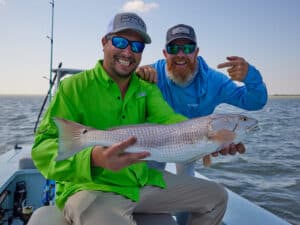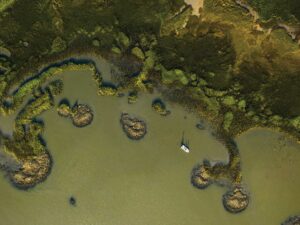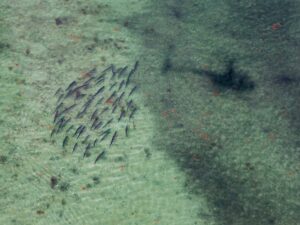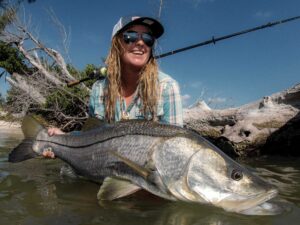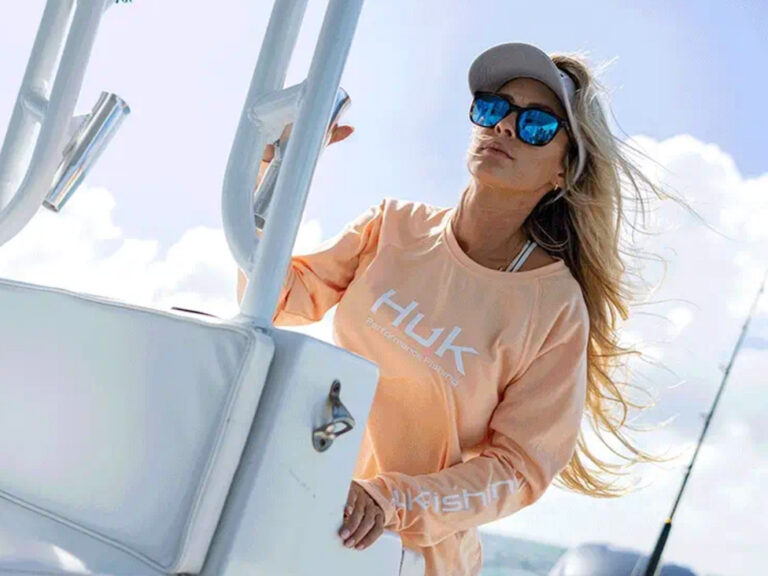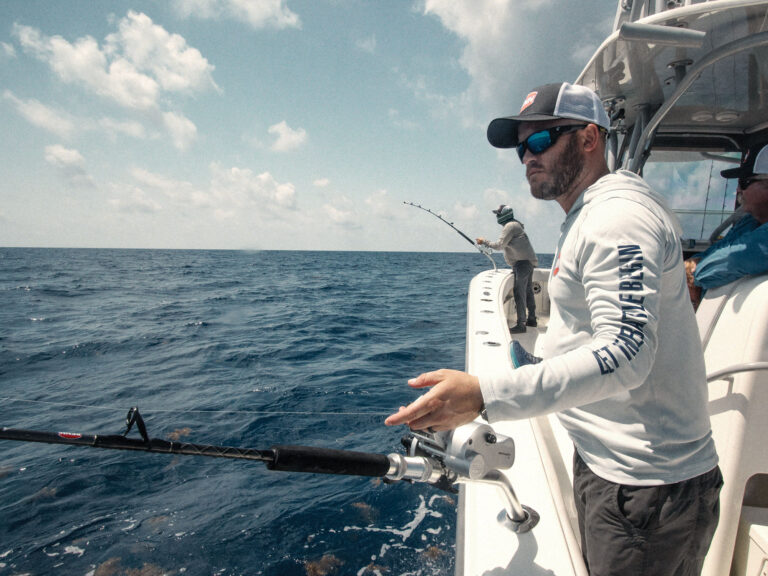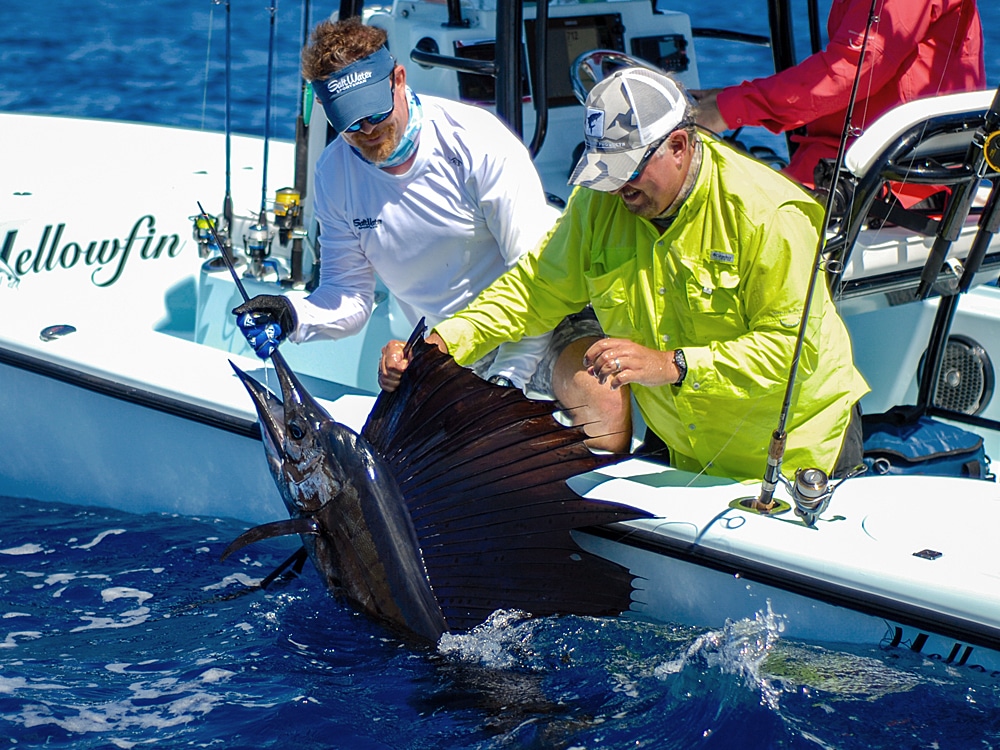
As fall yields to winter, and colder temperatures sweep across much of the country, many anglers stow away their tackle until next spring. But a few places, blessed with mild weather and fertile waters, continue to offer hot action when the fishing elsewhere comes to a screeching halt.
If you would rather catch fish when others bundle up and find other ways to pass the time, here’s a list of twelve top cities — in no particular order — to go bend a rod during the colder months.
Key West, Florida
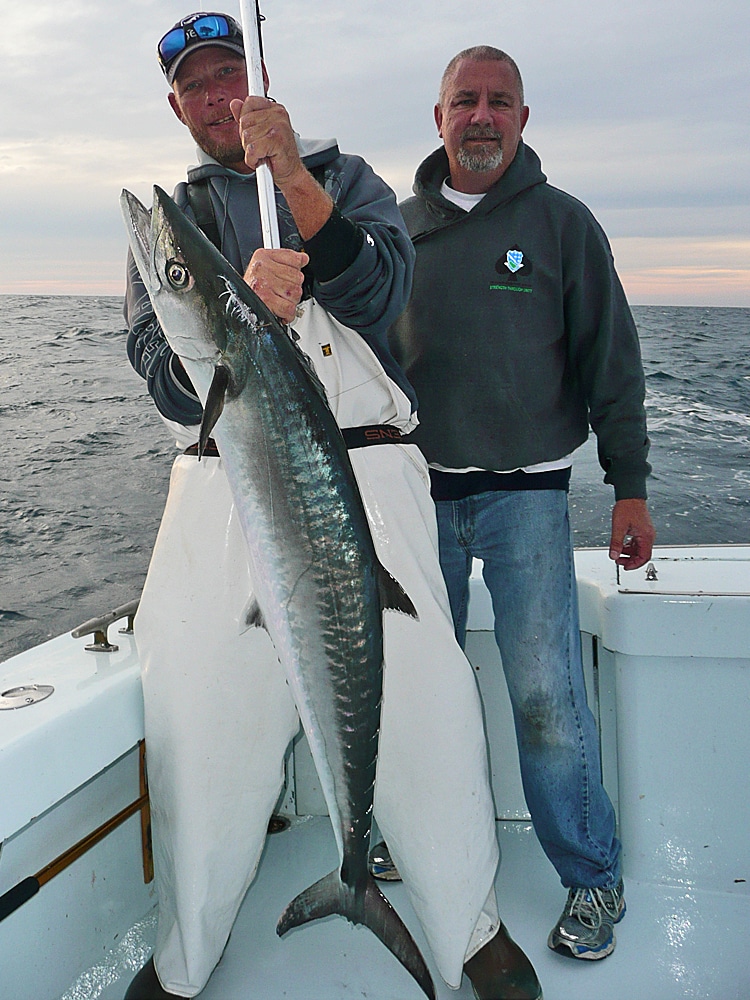
The southernmost city in the lower 48 is the winter home for many popular species, and with daytime temperatures mostly in the 70s, anglers can comfortably troll or live-bait South Atlantic or Gulf of Mexico waters for a variety of offshore game, headlined by sailfish, blackfin tuna, trophy-size kingfish, and dolphin. Bottomfishing the area’s reefs for hefty mutton snapper, gag and black grouper is also superb during the winter months. Meanwhile, tarpon congregate heavily in the Northwest Channel, and some large specimens begin to show up in backcountry bights. In addition, lots of permit and some cobia revolve around Gulfside wrecks until late spring.
Venice, Louisiana
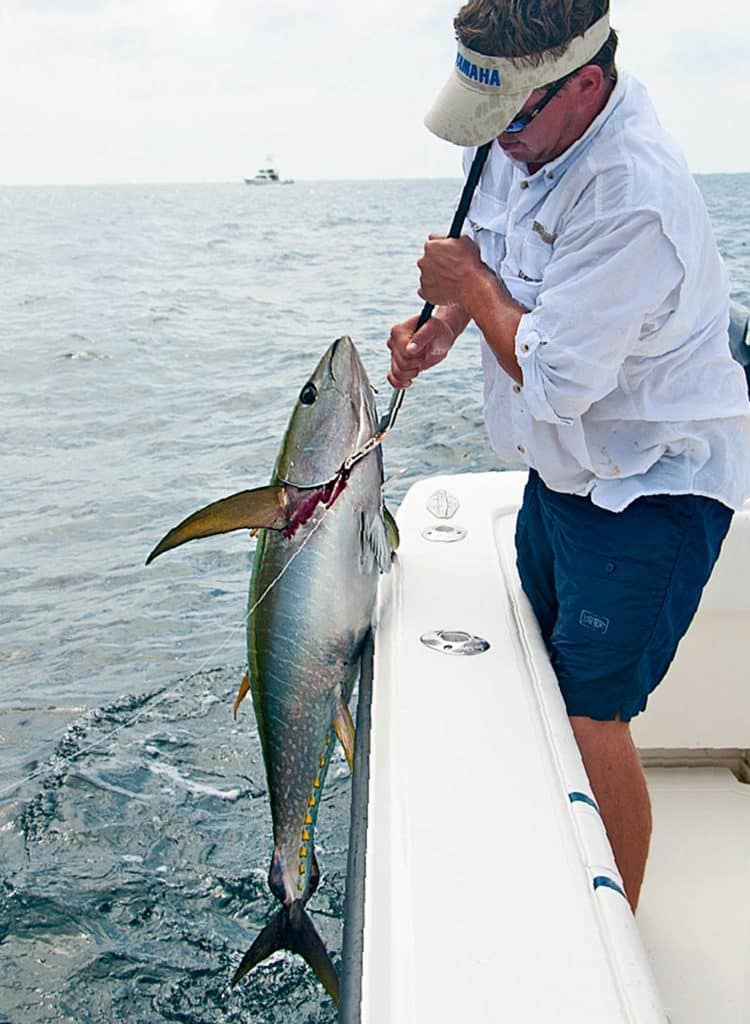
Venice winter fishing is excellent, inshore and offshore. This Southeast Louisiana town is famous for its yellowfin tuna action, which in winter centers around Midnight Lump and similar offshore pinnacles, as well as around shrimp boats anchored in the Gulf. Wahoo hunt around many oil and gas platforms that time of year, and so do amberjack, which gravitate toward the structures and suspend in midwater.
Bottomfishing for red snapper in Louisiana state waters is very productive during the cold months, and so is sight-fishing for slot-size redfish in the marshes and full-grown bulls around the outer shoals. Concurrently, speckled trout wait in ambush around inshore oil rigs and the deeper oyster reefs, venturing up mud flats and protected bays to warm up during calm, sunny days.
Miami, Florida
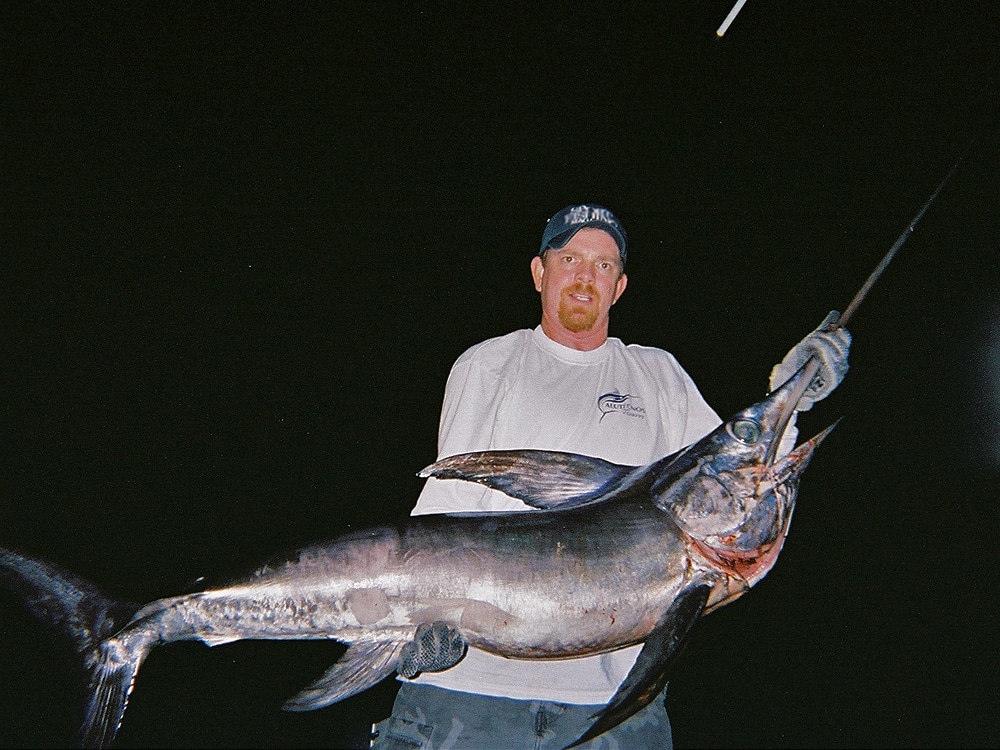
With 100-foot depths just one mile offshore, anglers easily troll or drift the reef line or venture slightly farther out to the color change for sailfish, abundant in South Florida waters during winter, and a mixed bag of blackfin tuna and dolphin. Various wrecks yield gag grouper and smoker kings, and consistent swordfish action rewards anglers drifting or slow-trolling deep baits along deep-water humps and pronounced ledges. Government Cut, Haulover Inlet and Bear Cut hold plenty of tarpon, which often stage along adjacent beaches as well. Bridges and docks in the Intracoastal Waterway attract lots of snook, juvenile tarpon, and some gag grouper, while Biscayne Bay offers excellent chances to tangle with seatrout, bonefish, permit, and even a few redfish.
San Diego, California
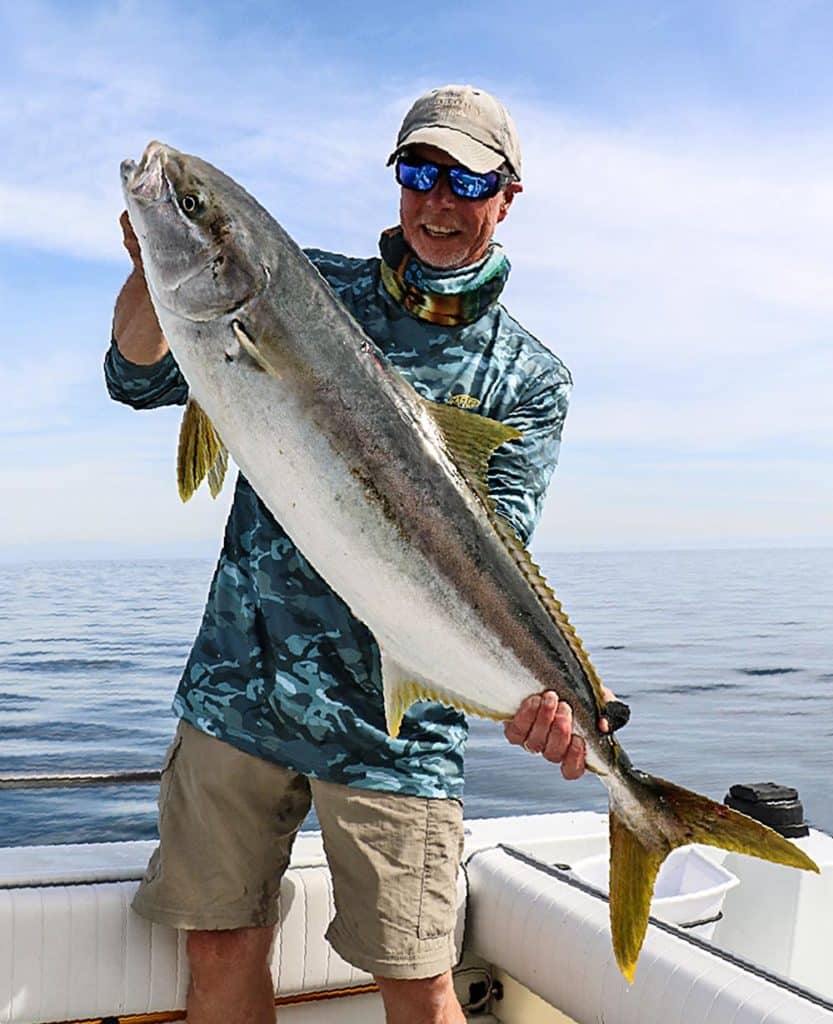
With rockfish and lingcod fishing closed during winter, many anglers from San Diego and neighboring Southern California towns cross into nearby Mexican waters for a memorable bottomfishing extravaganza. For those looking for bluewater action, runs to famous offshore grounds south of the border — from Hurricane bank down toward Mexico’s mainland — yield wahoo and trophy yellowfin tuna during the colder months, while the California yellowtail bite is good to excellent around the Coronado Islands, and the Point Loma and La Jolla kelp beds, also inhabited by plenty of calico bass. Winter action with California halibut up to 50 pounds remains steady off Imperial Beach and Camp Pendleton marine base all season, and spotted bay bass feed aggressively on South Bay’s grass flats.
Islamorada, Florida
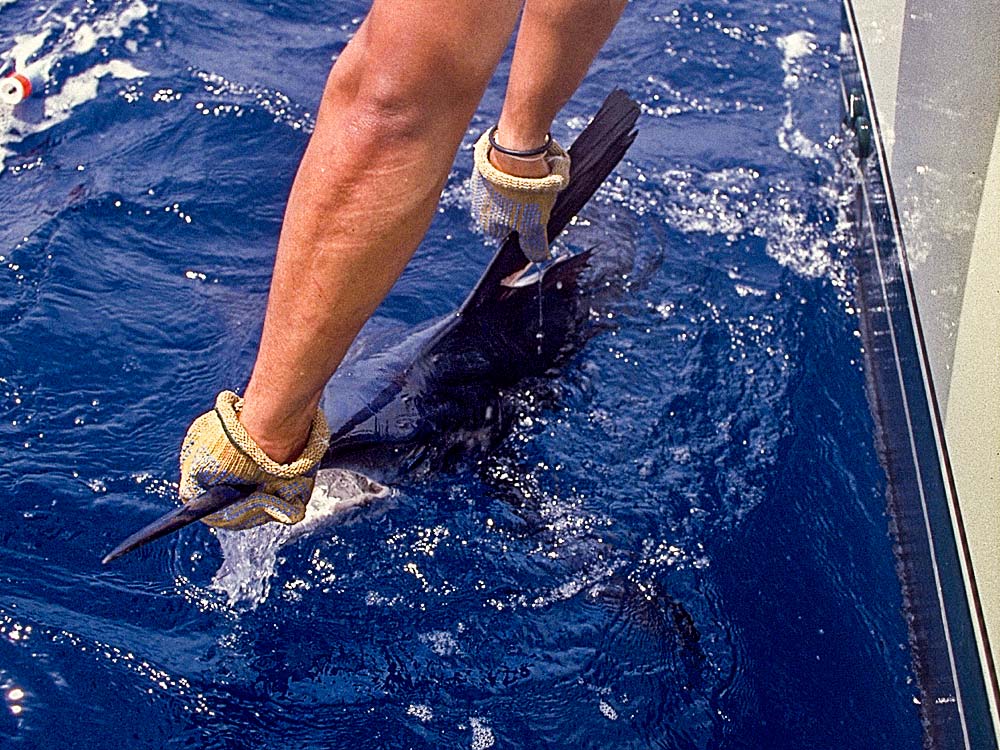
The bountiful reefs of the Upper Florida Keys are a true angler’s paradise, even in winter, with lots of gag and black grouper, and some mutton snapper happy to accept bottom baits, and kingfish and Spanish mackerel intercepting live baits and lures from the surface to the middle of the water column. Sailfish action is superb in the area this time of year, and come February many chase schooling ballyhoo over the patch reefs, in water as shallow as 30 feet.
Swordfish remain a popular target out in deep water, some tarpon still hang around the major Highway 1 bridges, and both gulf and oceanside flats offer chances at bonefish and permit, while Florida Bay harbors large numbers of redfish and seatrout, along with snook, juvenile tarpon, and ravenous mangrove snapper in the mangroves.
Galveston, Texas
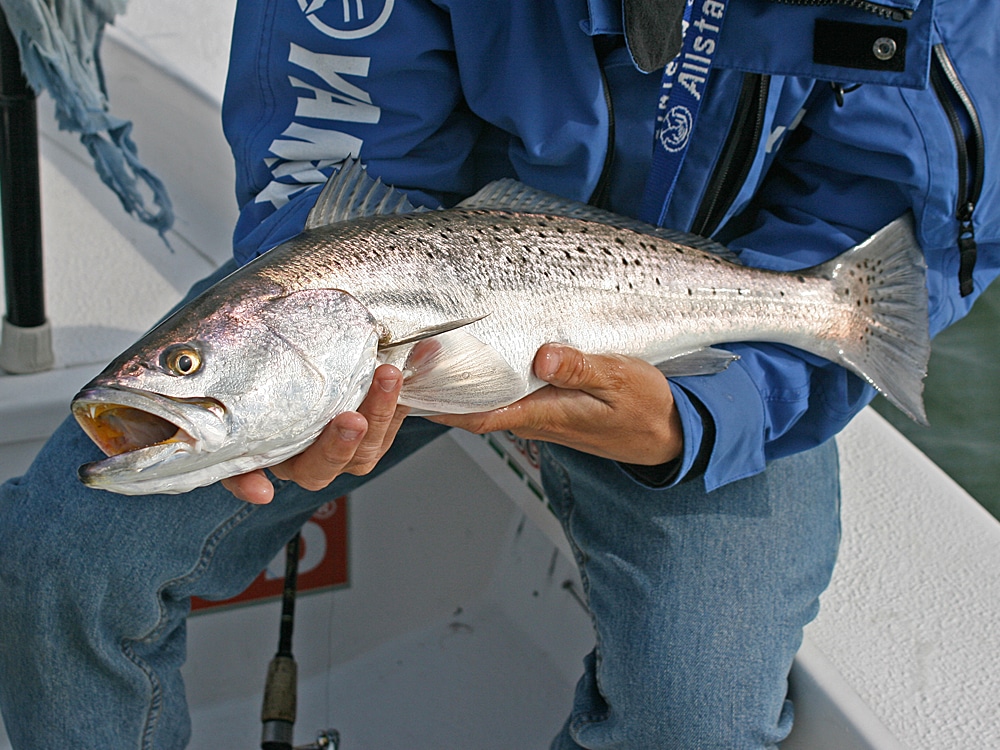
With its many channels, oyster reefs, docks, and oil rigs, Galveston Bay offers plenty of structure and forage to sustain the region’s year-round redfish, speckled trout, flounder, black drum and sheepshead populations, which also reside in neighboring Trinity, East and West bays. Excellent bottomfishing for red snapper in Texas state waters (while the fishery is closed in federal waters) is also available, but requires running southward an hour or two from Galveston, to where depths of 40 to 60 feet remain inside the 9-mile boundary. Boats heading offshore get to sample the great winter wahoo run, which takes place 70 to 110 miles out. Stetson Bank, and the East and West Flower Gardens are favorite hot spots for the striped torpedoes.
Hatteras, North Carolina
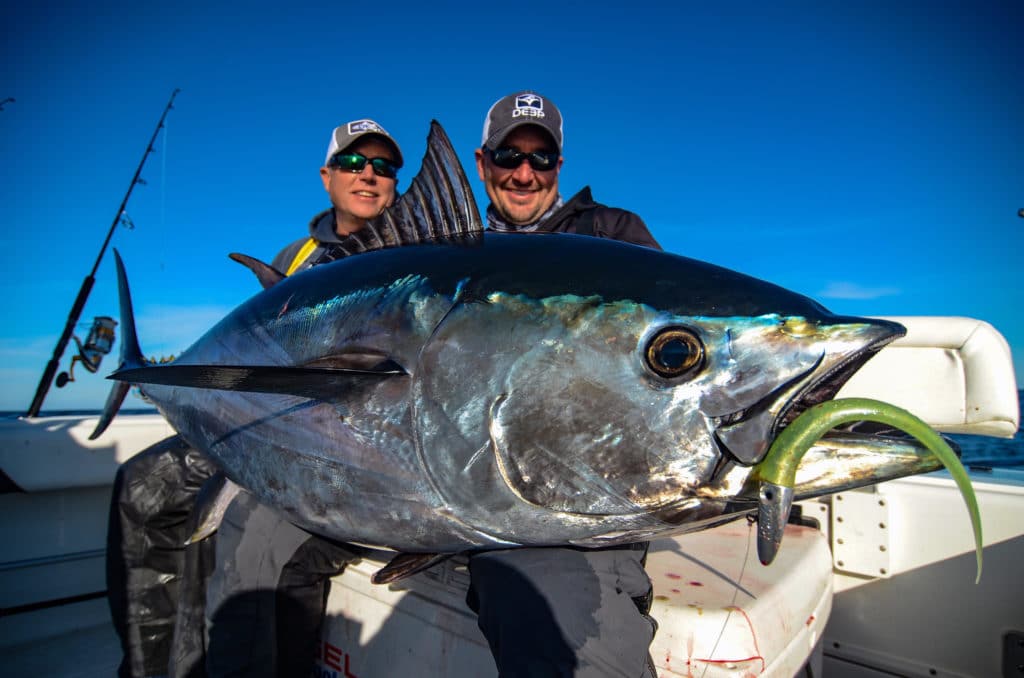
When the weather cools, the tuna bite heats up off the Outer Banks, as yellowfin, bigeye, and blackfin converge along the eastern edge of the Gulf Stream, and bluefin tuna of 200 to 500 pounds often come within a half mile from shore to feast on schooling baitfish. Striped bass, called rockfish in North Carolina, also winter in the area. Big 20- to 40-pounders often stage at nearshore shoals, sloughs along the beaches, and in Hatteras and Ocracoke inlets, or they move into Pamlico Sound and up the Pamlico River, where anglers also find slot-size and big bull redfish, known locally as puppy drum and drum, respectively. Speckled trout, black drum, and sheepshead are also available in the marshes.
Charleston, South Carolina
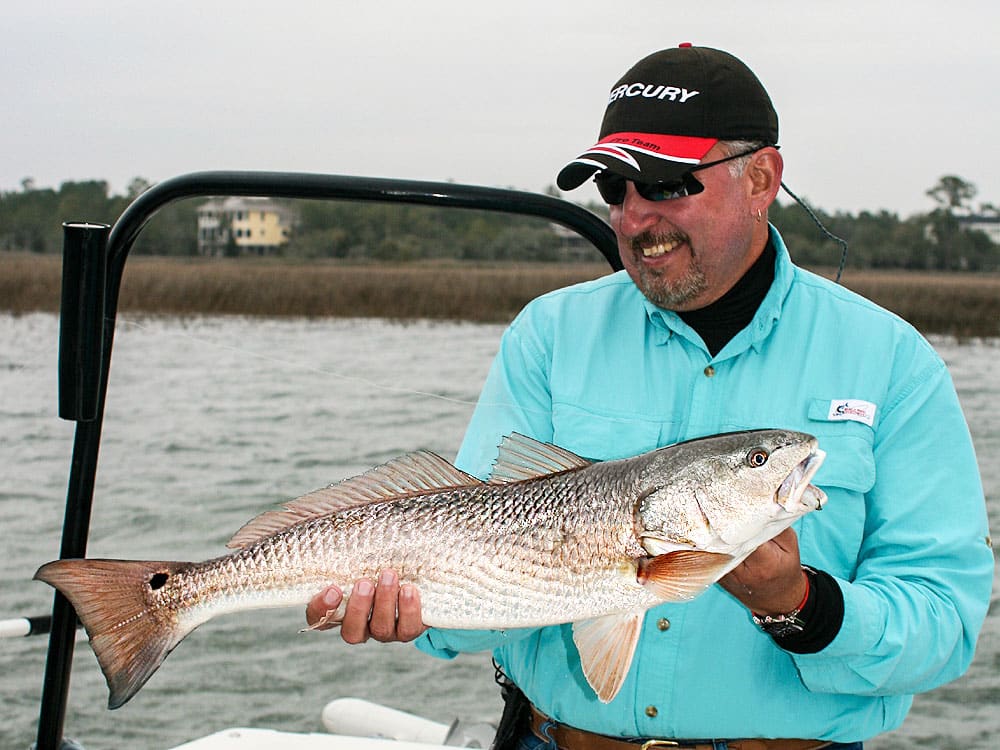
Offshore winter action off South Carolina’s capital city features large numbers of blackfin tuna and a solid wahoo bite, and sheepshead, triggerfish, black sea bass, amberjack, and groupers abound on the reefs. Inshore, redfish gather in large schools in small drainage creeks that lead into the marshes, move to adjacent mud flats to warm up, and forage in nearby grassy areas, where anglers find them tailing during low tide. Meanwhile, seatrout can be targeted in the deeper holes and in the middle of the same creeks.
The Ashley, Toogoodoo and Edisto rivers harbor plenty of redfish, seatrout, and black drum in the winter, and the jetties at Murrells Inlet and Stono Inlet produce some truly big specimens, along with some sheepshead. Dynamite Hole in Charleston Harbor is another top spot for bull reds of 20 to 40 pounds.
Stuart, Florida
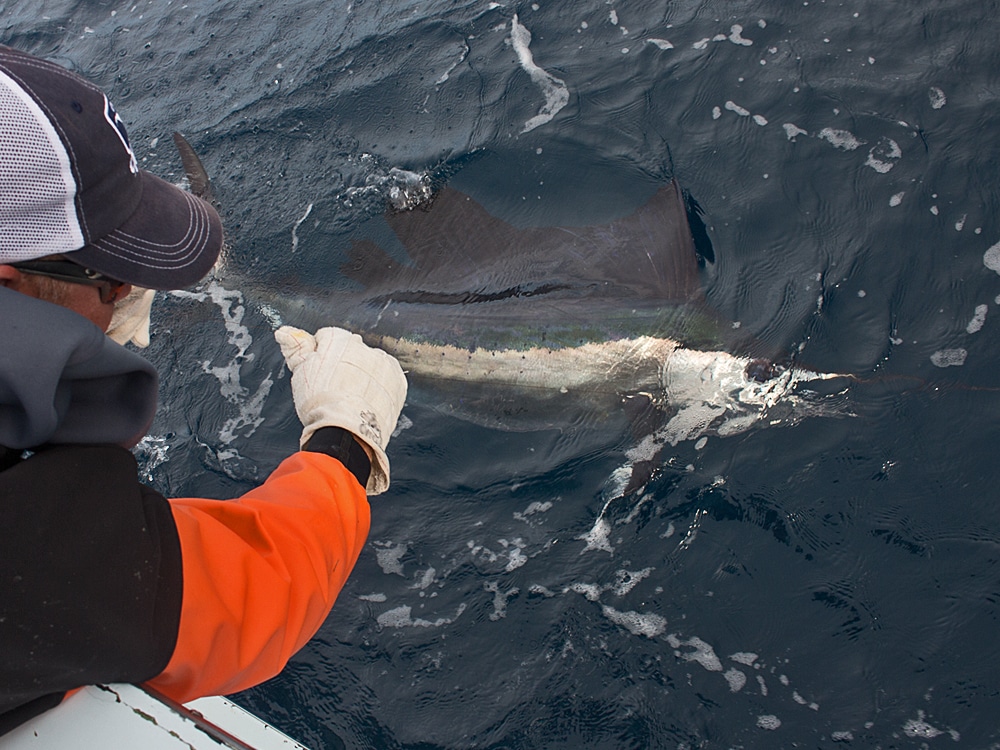
Winter brings lots of hungry sailfish to the stretch between Palm Beach and Fort Pierce, and boats often tally double-digit release numbers. Some dolphin cruise the edge of the Gulf Stream then also, and kingfish schools terrorize baitfish closer to the coast. Inshore, migrating bluefish feed along the beaches, and some move into the Intracoastal Waterway and the Indian, St. Lucie and Loxahatchee rivers, where they compete for food with snook and seatrout, both of which can be effectively sight-fished as they warm up on the shallow shoulders of the ICW during sunny days, or at night, as they wait in ambush under the lights at various bridges and docks. Some redfish frequent the same structures, and others patrol the Indian River grass flats. Come February, pompano start to show up along the beaches.
South Padre Island, Texas
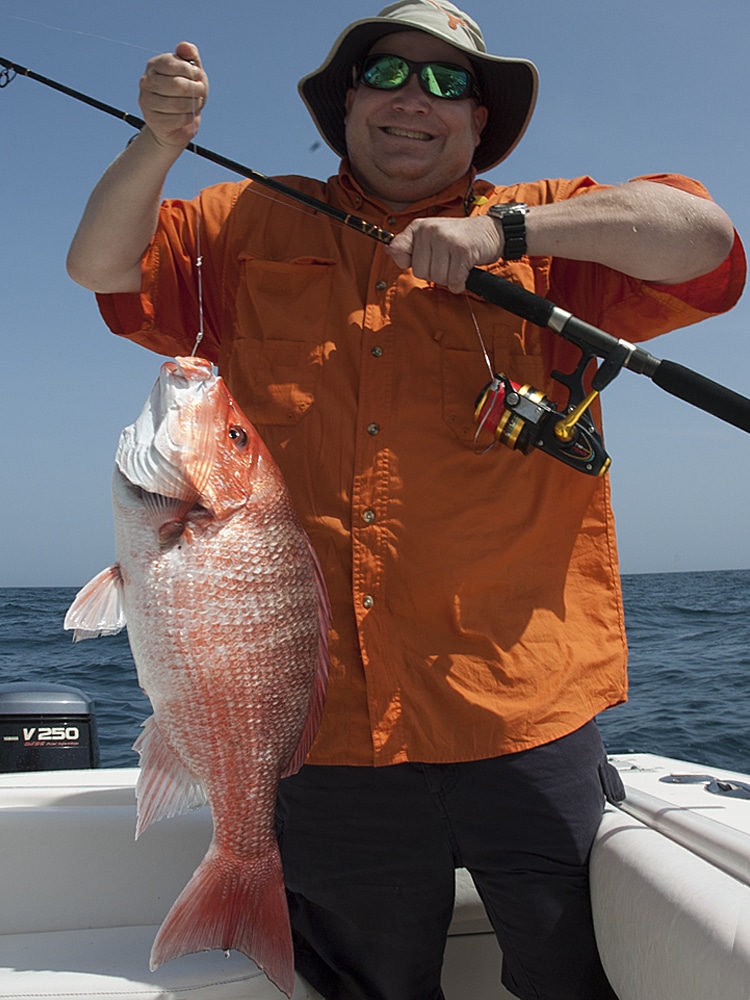
Located on latitude 26, just like Miami, Florida, South Padre Island, Port Isabel and Port Mansfield, some 20 miles north, rarely experience prolonged cold weather periods, so the fishing remains hot most of the winter. In the surf, redfish, whiting and pompano dominate the action. But in Laguna Madre, speckled seatrout, black drum, and countless redfish own the grass flats, and in winter, when the water turns super clear, they offer some amazing sight-fishing opportunities. Flounder are also abundant in the channels and sand holes, and snook, available in the port areas, are particularly active during the warm spells. Some of the biggest red snapper of the year are caught off South Texas in state waters, while red snapper fishing remains closed in federal waters. The rocks scattered across a 17-mile stretch of beach, north of the Mansfield jetties, are known to yield big numbers of snapper and some grouper.
Orange Beach, Alabama
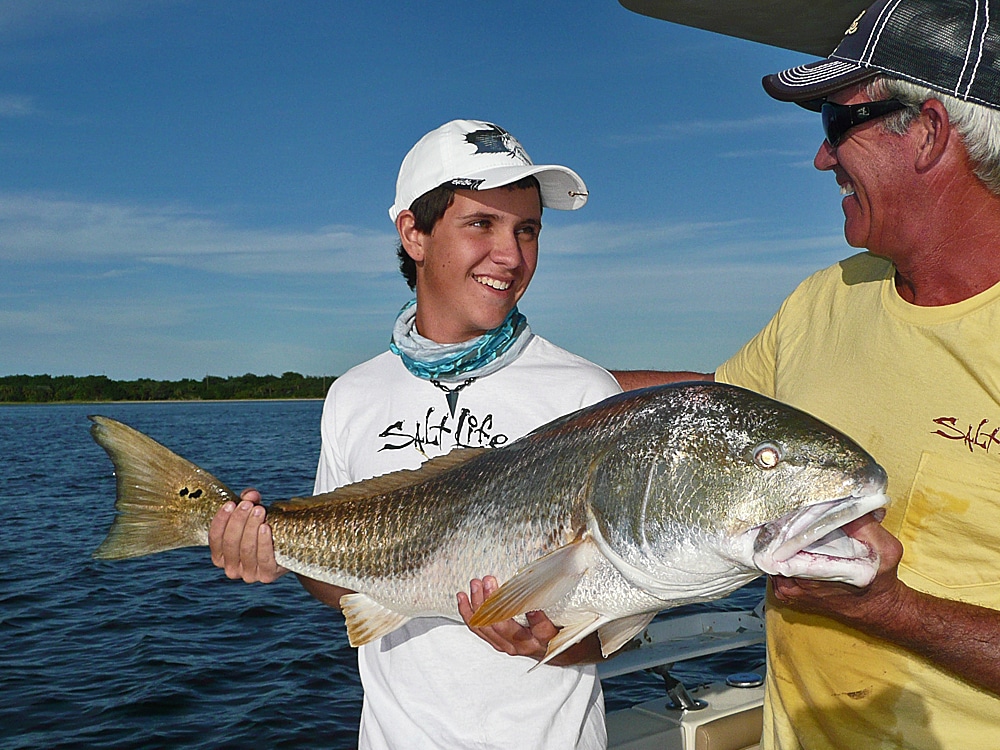
Schools of big bull redfish patrol the beaches of Alabama and the adjacent Florida Panhandle, and anglers out of Orange Beach and Gulf Shores look for bird activity and surface feeding to get in on the action. Dixey Bar, near the mouth of Mobile Bay, is another sure bet for bulls. Sheepshead and slot-size reds feed around various oil rigs in Mobile Bay and, along with black drum, also forage around stumps and oyster beds in the Intracoastal Waterway and Wolf and Bon Secour bays. Some seatrout are also available in Mobile and Bone Secour bays, and others compete with reds for shrimp and small baitfish in the Fowl River and Fowl River Bay. Out in the Gulf, amberjack hover around a number of oil and gas platforms, while triggerfish stack up down below.
Chokoloskee, Florida
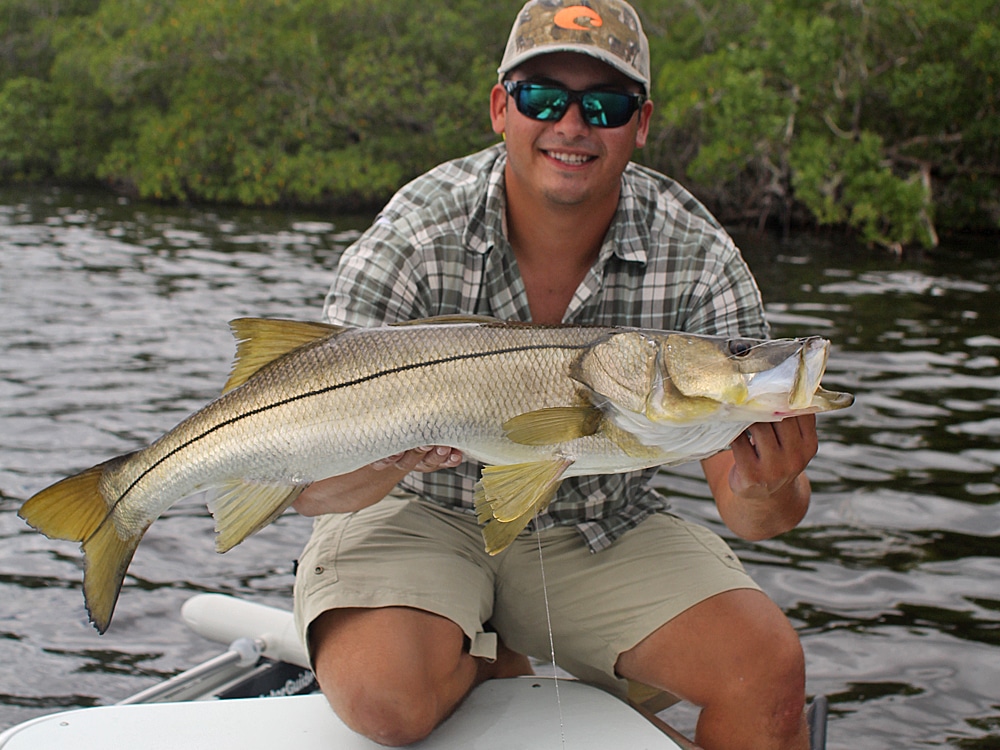
Chokoloskee is the gateway to the Ten Thousand Islands region of the vast Everglades National Park, truly a winter wonderland for inshore anglers, who get to target redfish, snook, seatrout, tarpon, and even gag grouper, in the maze of oyster-lined creeks, mud flats, and mangrove islands. Look for big linesiders hunkered down in deep holes during overcast days, or warming up over shallow mud bottom during sunny days.
Trout bunch up in similar holes, especially near creek forks and the mouth of smaller tributaries. Redfish, however, prefer to hunt along the mangroves and oyster bars. Juvenile tarpon move way up coastal rivers and creeks, settling in small brackish lagoons for the winter, and the larger resident fish congregate in the deeper stretches of the coastal rivers and inside bays. Gag grouper and small goliath come in from the Gulf and take up temporary residence along deep mangrove shorelines and creek mouths. During the colder months, several nearshore wrecks are flush with permit, some cobia, gag and goliath groupers, and a bit farther off the coast, kingfish stage over just about any hard bottom.

